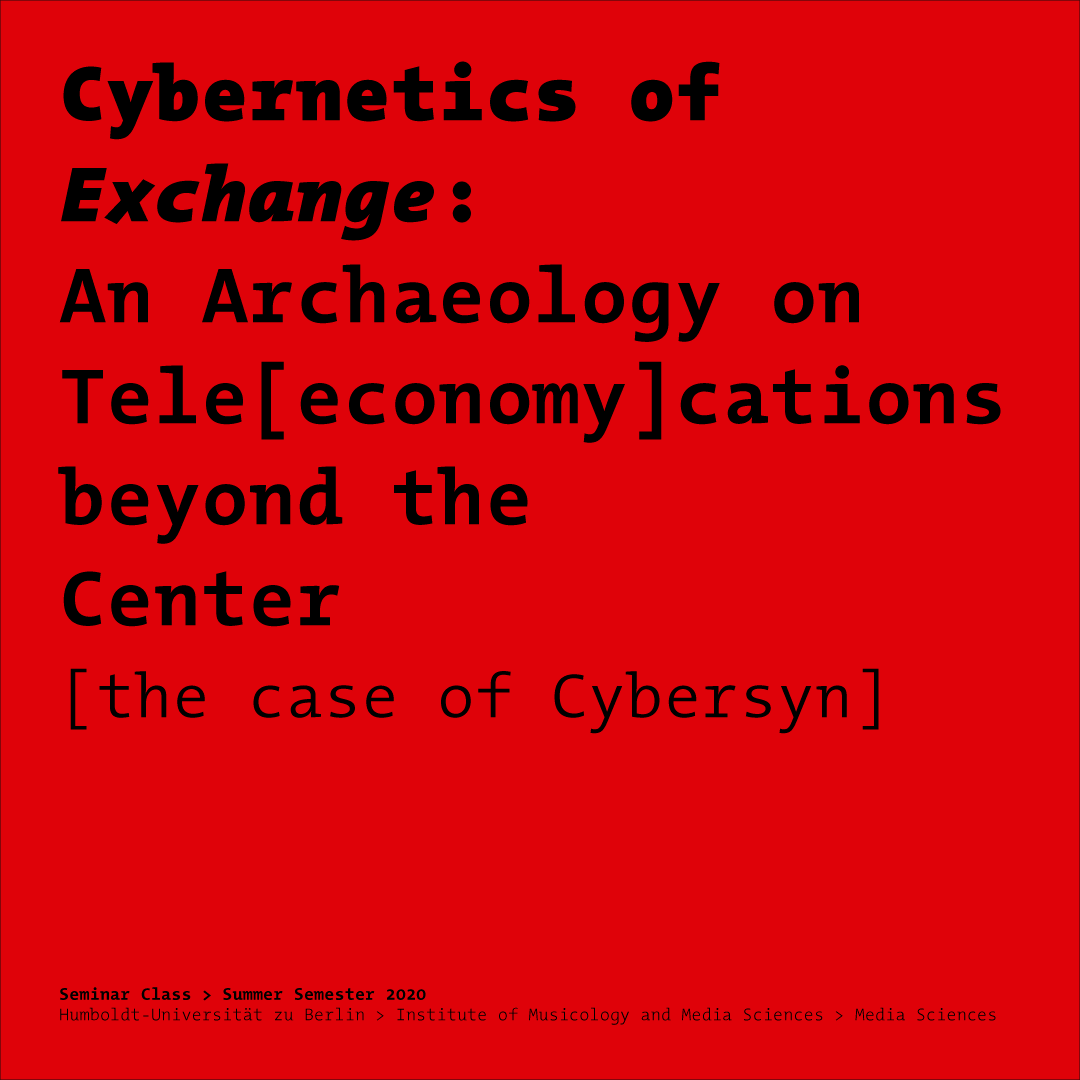
When we acknowledge that we study Cybernetics, its history and theories, as an attempt to archaeologically discern the techno-epistemological stage through which our contemporary cultures and societies currently transit — and thus, too, the way through which we got here and the possible routes we could then follow—, we face the challenge of recognizing the many folds that would structure such a history; that is to say, the necessity of identifying the multiplicity of paths —the histories, in plural— that shape the complex, the system, Cybernetics helped to configure.
It is in the wake of such configurations that this seminar will move: aiming to trace the histories that, by going beyond the geographical centers drawn by Europe and North America, show the concurrences of scientific discourses, techniques, infrastructures, and technologies that point out the emergence of a feedback loop we will call tele-economy of exchange, and/or exchange as an economy of and for telecommunications. Thus, we will use Michel Foucault's notion of Exchange as an archaeological starting point to study Chile's project Cybersyn —the network and system developed by Stafford Beer and his team—, and through that, the odd and apparently improbable possibility that a genealogy of an economy of data, and of data as economical value, might find some of its historical nodes in a remote 1970s' South America.
Hence, the class' participants will be introduced to the analysis of key archaeological concepts, historical events on the exchange of scientific discourse and technological infrastructure (between Europe, North America and South America), as well as of a brief genealogy on the history of capital, the state, machines, and data. With that, through each session, the attendees will participate of open discussions that will lead to the delivery of an analytical and yet speculative essay on the possible connections between the history of Cybernetics, the exchange of data, its economy, and the current state of our media-cultures, which can take the form of a presentation or a short paper.
- Course owner: Diego Ignacio Gomez-Venegas